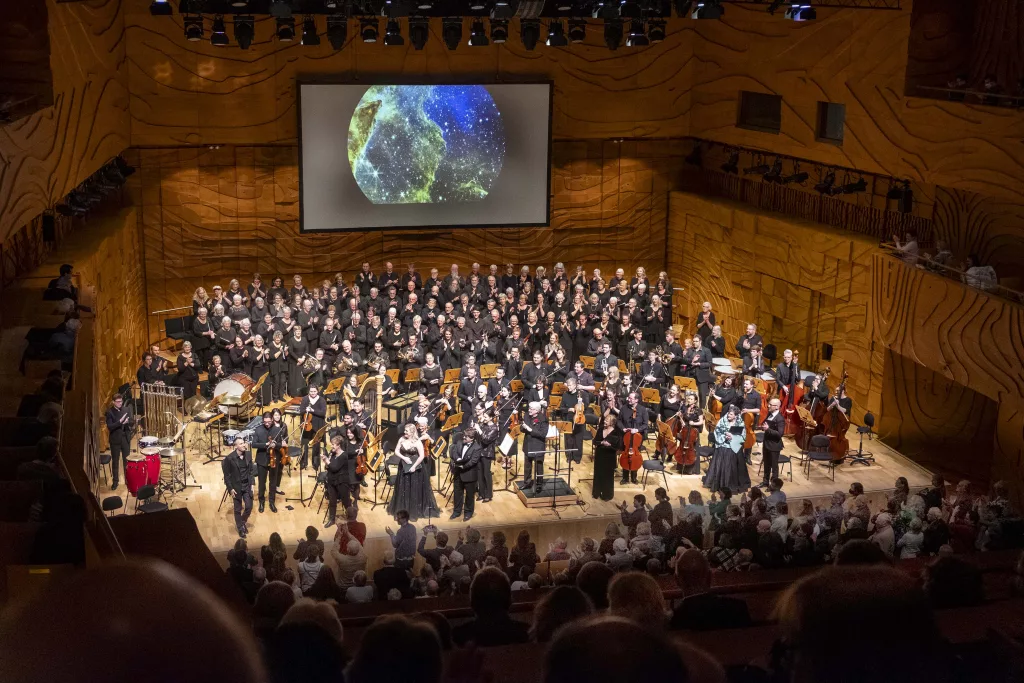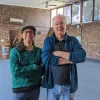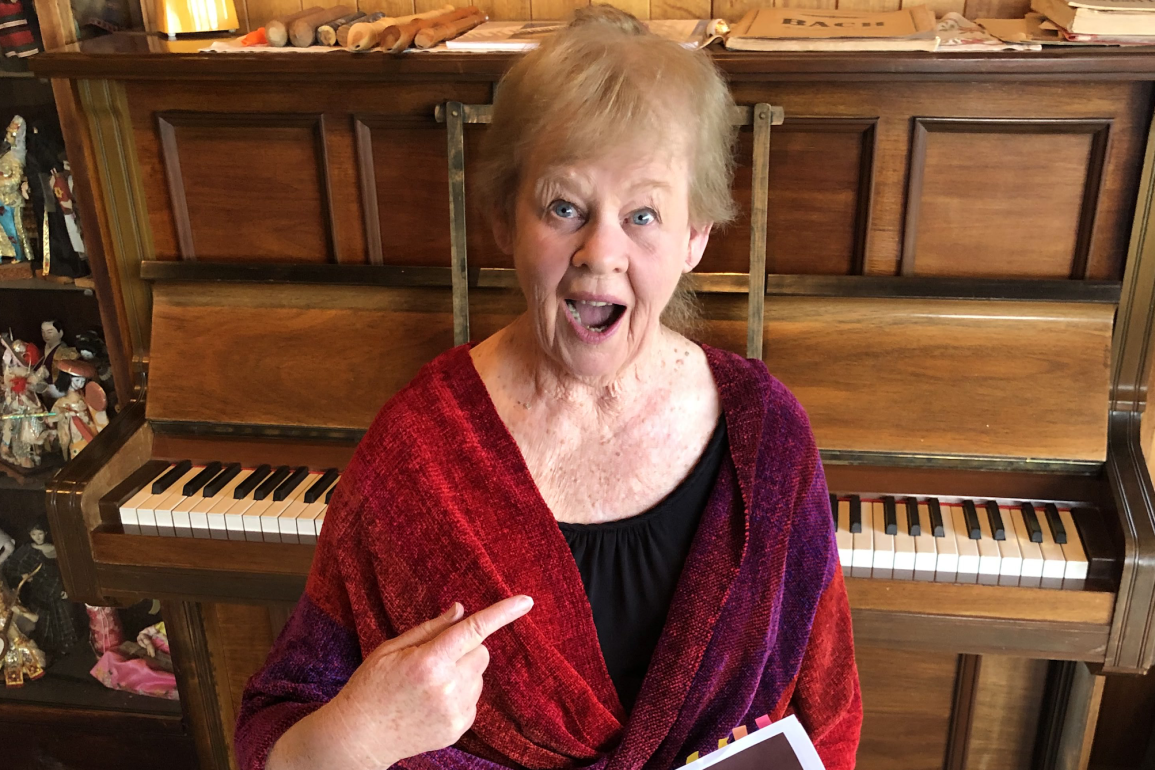Our area has nurtured many creative, scientific and academic thinkers and exceptional people. Seldom can all these attributes apply to one person. Eltham resident, Professor Jenny Graves, is one such person.
Jenny has been a research scientist, a geneticist, for over 50 years. She has worked internationally and has led labs and centres and research teams, gaining international recognition, awards and accolades for her work. Among these are the Macfarlane Burnet and Ruby Payne-Scott career medals (2006, 2023) and Officer, then Companion, in the Order of Australia (2010, 2022). She is a Fellow of the Australian Academy of Science and served on the Executive for eight years as Foreign Secretary then as Education Secretary. She was elected an International Member of the US National Academy of Science in 2019. In 2006 Jenny was L’Oreal-UNESCO Laureate for Women in Science, and in 2017 won the Prime Minister’s Prize for Science (the first woman to win this award solo).
Jenny is a remarkable woman, achieving recognition in male dominated organisations. Her work has led to significant and influential new theories on the origin and evolution of the human sex chromosomes and sex determination, including her controversial prediction that the human Y chromosome is disappearing. Scientific research often revolves around collaboration and leadership and Jenny has refined her skills in those areas most effectively. Jenny loves to write and has published four scientific books and 462 scientific works, as well as many articles on popular science.
For over 50 years, Jenny has also been a passionate singer, a chorister in both America and Australia. She now sings with the Heidelberg Choral Society, a local community choir that has been performing major choral works since 1920. And for more than 20 years Jenny has been thinking of ways to unite her love of science and her love of music, with ideas bubbling away in her mind, unconsciously developing a plan.
Most large-scale choral music sung in this century was written hundreds of years ago when scientific knowledge was very limited. The words were completely based on biblical text, reflecting also the sponsorship and therefore the control over music by the church. The music reflects past societies and times and the generation that it was composed in. Musically, these works have stood the passage of time well. But do the words speak now to the ever-changing world of the 21st Century, the new scientific knowledge that is now available, and new threats to mankind?
In 1798 Haydn wrote his well-loved and often-performed oratorio, “Creation Mass” using words from Genesis, the book of Psalms, and Milton’s “Paradise Lost”. But in the following 200+ years, with exponentially expanded scientific knowledge, we now know the current bookends of our existence – the Big Bang Theory and some of the coming effects of climate change and the loss of biodiversity.
As far as Jenny was concerned, a choral work which reflected the changed world was needed. What about a new choral work reflecting our current scientific understanding – a work that would reflect on the potential of human beings to be destructive of our planet but also of our great capacity to heal, repair and understand our place in the universe?
A trigger for Jenny to start turning her idea into reality was that in July this year in Melbourne, geneticists from around the world would congregate for the XXIII International Congress of Genetics. It is the most prestigious event for geneticists, which has been held every 5 years from its inception in 1899. It was anticipated that over 2,000 international delegates would attend.
Jenny’s idea of a new oratorio that told the creation story from science was ambitious in scale and had to be developed, produced and rehearsed in less than one year. It needed a composer and a conductor, a choir and an orchestra, and a whole team of people to assist with preparation and performance.
Jenny started by confessing her mad idea to a fellow chorister and poet, Leigh Hay, who offered to help her write the libretto of the new creation.

Then a ‘casual’ lunch was put on by Jenny and her husband, John Graves, for the unsuspecting conductor of the Heidelberg Choir for the last 12 years, Peter Bandy. After the odd glass of rosé and a moment’s amazement, Peter agreed that commissioning and performing a new major work could be a great experience for the choir, and would create a much needed new major contemporary work for the choral repertoire.
Jenny had set her heart on composer Nicholas Buc and Peter enthusiastically endorsed this choice and called him then and there. Nick Buc is a name that might be recognised by past students, staff & parents as a wonderful music teacher at Eltham East Primary School. He now lives and works in New York, but rang Peter back immediately. He is a highly sought after conductor for live film concerts, having conducted the world premieres of Star Wars, The Lion King and a host of others, as well as composing and scoring for films and singers. Nick was very interested from the first conversation and accepted the Heidelberg Choral Society’s commission to write the full score – not a short, narrow work but a full-length, no-holds-barred oratorio.
Jenny then had to pitch the idea to the president and committee of the Heidelberg Choral Society who enthusiastically embraced the idea, though of course were worried about the financial impact.
To seal a date for the performance and to give everyone a definite timetable, the Melbourne Recital Centre was booked for 18th July. Peter set out to engage a 60-piece orchestra and four soloists, as well as four understudies and an associate conductor.
Jenny started writing a new choral work to be called “Origins – of the Universe, of Life, of Species, of Humanity” in late June 2022. She describes the process as, “Pure joy. Ideas and words came tumbling out in verse as though I’d been thinking about it for years”. She confessed that although she had written only one poem in her entire life as a teenager, it won the school creative literature prize.

Jenny’s tumbling words took only 10 days to form on paper. Then they were quickly shaped and reshaped by Leigh. Working together they honed Jenny’s ideas into 21 movements that described the Big Bang, the origin of molecular life, the origin of species and the coming of humanity.
Jenny’s inspiration for much of the libretto was often through visual images and she wanted to explore the idea of a video background for the performance. This seemed financially out of the question but at the last stages of preparation, master animator and videographer Drew Berry volunteered to take on this project on time donated by Walter & Eliza Hall Institute in Melbourne. Drew has exhibited his work internationally. He produced the many images that expanded the Origins audience’s understanding of cosmology, genetics and evolution during the performance.
A major performance like this doesn’t pay for itself even if it is sold-out, so Jenny and the choir committee needed to raise about $100,000 from donations. Grant applications (all unsuccessful) and fundraising continued relentlessly during the last months of 2022 and the first half of 2023 through many avenues and from many quarters.
La Trobe University (where Jenny is a Distinguished Professor and Vice Chancellor’s Fellow) became a major sponsor and also provided outlets and advice on publicity. Jenny was given tutoring on social media: ‘Twitter 101’ Jenny called it. She wrote an ‘Origins of Origins’ blog for the choir and many newsletters. ‘People who knew people’ were contacted to help drum up support as well as people who shared her scientific and musical dreams.
The practical work and organisation and reorganising as well as rehearsals of the choir continued unabated and intensified. The dream continued to unfold until the world premiere of the new work in the lovely Melbourne Recital Centre on July 18th.
The night was a triumph, with the sell-out audience giving a standing ovation for all the performers and contributors. But what would be the reviews that would be important for ensuring a long life for “Origins”? A congratulatory review in The Age and a more thoughtful and even more positive review in Cosmos signalled that “Origins” was to be taken seriously.
Jenny appreciated that Origins challenged the content of works that had lasted and been appreciated for generations. Would there be pushback, as so often happens to people who challenge the established and accepted order? “We did lose one tenor from the choir,” Jenny said. “But the most rapturous reviews came from church magazines and newsletters.” Eureka Street described it as a “spiritual experience”, while another remarked on the “explosion of truth and beauty”. “My dream has really come true,” sighs Jenny.






